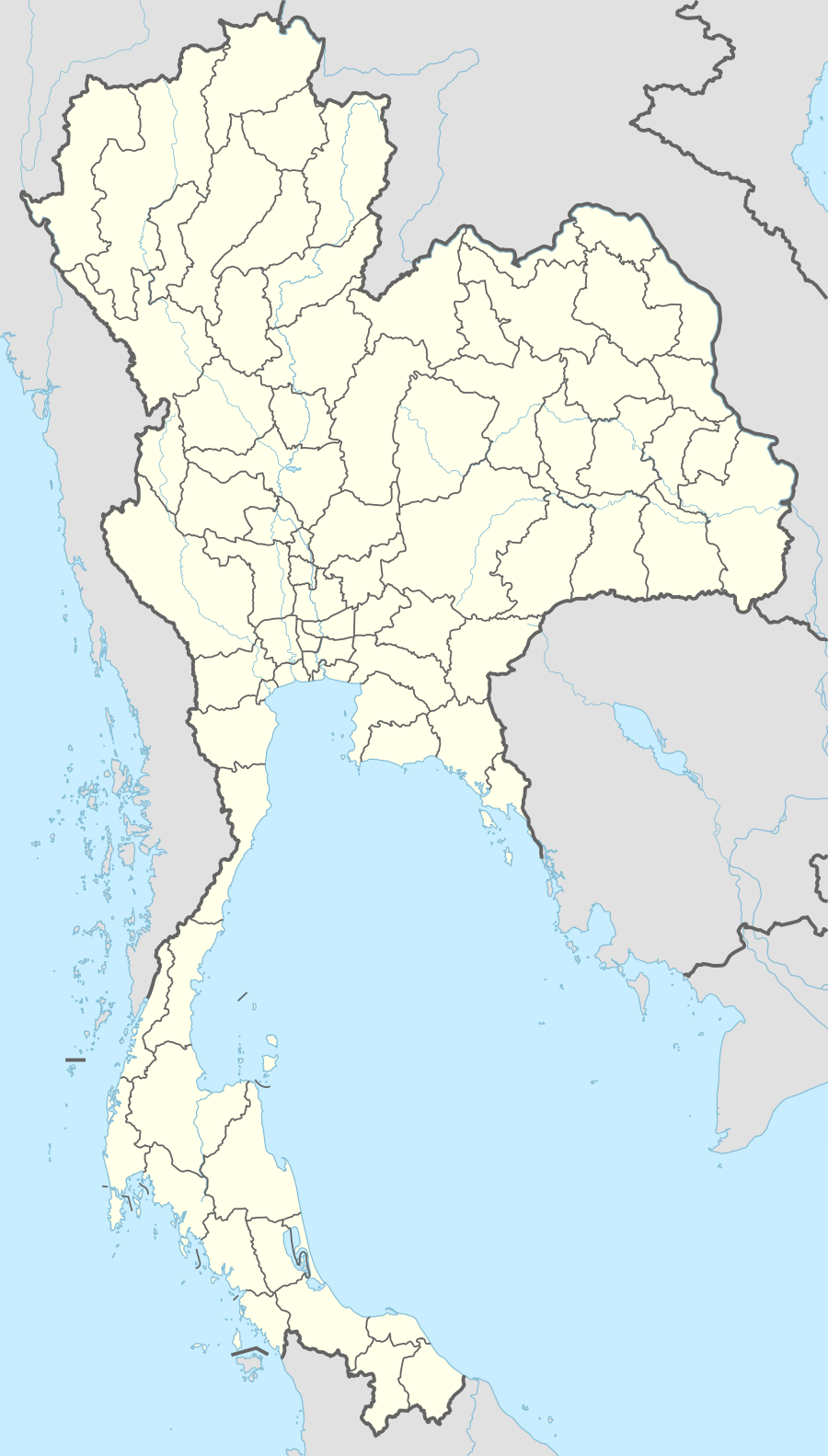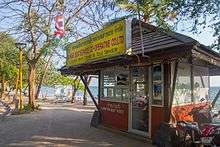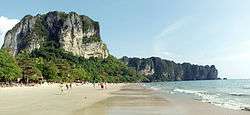Ao Nang
| Ao Nang อ่าวนาง | |
|---|---|
| Tambon | |
|
Ao Nang Beach | |
 Ao Nang | |
| Coordinates: TH 8°1′53″N 98°49′21″E / 8.03139°N 98.82250°E | |
| Country | Thailand |
| Province | Krabi |
| Amphoe | Mueang Krabi |
| Population (2005) | |
| • Total | 7,898 |
| Time zone | ICT (UTC+7) |
Ao Nang (Thai: อ่าวนาง) is a small resort town and subdistrict in Thailand.
Geography
Ao Nang is a central point of the coastal province of Krabi, Thailand.[1] The town consists chiefly of a main street, which is dominated by restaurants, pubs, shops and other commerce aimed at tourists. The main beach is used by sunbathers to a certain extent, but there are a large number of longtail boats which offer access to other beaches on the mainland and on nearby islands.
Attractions
Scuba diving
There are a number of scuba diving centers in Ao Nang, offering dive course from basic up to instructor level. The "local" islands in Ao Nang Bay are relatively easy to access and uncrowded compared to many of the diving sites around Phi Phi Island. Other options include Shark Point Marine sanctuary and the King Cruiser wreck which is suitable for intermediate divers, and mini safaris to Hin Daeng, Hin Muang and the Ko Ha Yai Islands for experienced or deep qualified divers.
Rock climbing
Ao Nang was originally put on the travel map by backpackers, many of whom who came for the excellent climbing that Krabi's karst rock formations offer, and rock climbing is still widely available through centers in Ao Nang, although most of the climbs are in the areas around Railay, Tonsai, and Phra Nang beaches.
Boat tours / transfers

The main beach at Ao Nang is the departure point for boats to a number of places, including the nearby resort of Railay (or Rai Leh), which cannot be accessed by road, Poda Island and Chicken Island. Ticket booths with clear pricing structures are located at both ends of the beach.
Tsunami monument
On 26 December 2004 Ao Nang was hit by the tsunami and suffered serious damage to most coastal areas. With help from the local and international communities most of the damage was cleared up fairly quickly, and today the only remnant of the tsunami is the Tsunami Memorial dedicated to the thousands of locals and foreigners who lost their lives. The monument is at Noppharat Thara, close to the national park offices.
Nightlife
Ao Nang's nightlife centers on two areas, which are known locally as "Center Point" and "The Soi" (Soi RCA). Another nightlife area, the strip of bars along Bamboo Soi, was demolished in 2014. Both Center Point (on the main beach road) and "The Soi" (about 200 meters up from the beach on the right just before McDonald's across the street) contain bars offering loud music, hostesses, and free pool.

Environmental issues
Ao Nang has a wastewater treatment plant that is able to handle about 3,000 cubic meters of wastewater per day, not nearly enough, according to Ao Nang Administrative Organization (OrBorTor) President Pankum Kittithonkun.[2]
References
- ↑ "Ao Nang". Tourism Authority of Thailand (TAT). Retrieved 15 June 2015.
- ↑ Plerin, Chutharat (2014-10-25). "Special Report: Phi Phi cries for help". Phuket Gazette. Retrieved 15 June 2015.
External links
| Wikimedia Commons has media related to Ao Nang. |
 Ao Nang travel guide from Wikivoyage
Ao Nang travel guide from Wikivoyage
